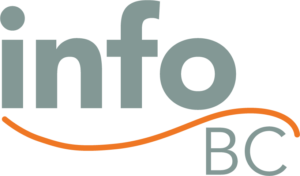Author: Alistair Bullen

Background
In January we officially launched the Info-BC survey. The study explores patient and health professional preferences for secondary breast cancer treatments using a health economics tool called a discrete choice experiment (DCE). The launch marks the culmination of over a year of research and hard work including literature reviews, qualitative interviews and analysis of the SMC’s Patient and Clinician Engagement (PACE) statements. Info-BC asks respondents to state their preference between hypothetical treatments which provide different benefits and toxicities to the patient. Patients are asked to imagine that they are considering the treatments for themselves whereas health professions are asked to imagine that they are recommending treatments for our hypothetical patient Irene.
Hypothetical Patient
The decision to include Irene was founded on feedback from health professionals who told us that it would difficult for them to recommend a treatment without knowing a little about the patient. The description we formulated for Irene was designed to reflect a typical secondary breast cancer patient so that responses from health professionals were more relevant to our real-life patient cohort. Official CTCAE descriptions of the grades of toxicities were shown to health professionals and patient language translations were shown to patients. To find out more about the nature of the hypothetical treatments, and the research which helped to design them, please read my previous post here.

Design and Recruitment
There is a finite number of hypothetical treatment decisions which patients are asked to make which were D-efficient and generated by the NGENE choice metrics software. The potential choices were compiled and inputted into our survey which was designed and implemented using the Qualtrics online survey platform. The survey can be accessed using an anonymous link which can be found on our Info-BC landing page. We are recruiting via 4 key channels; 1) our cancer research nurse, Morag McIntyre, at St John’s hospital who has been directly approaching patients who have may complete the survey there and then on a tablet or later at home online 2) via social media channels with help from ECTU, the Usher Institute, Breast Cancer Now, HERU and the CRUK Edinburgh Cancer Centre just to name a few 3) we have been utilising our own personal networks and directly approaching NHS staff who are suitable participants for the survey. 4) a respondent panel organised via Qualtrics. We intend to continue recruiting until April at which point we will conduct a final analysis of the data
Concluding remarks
The Info-BC project is moving into its final stages and we are excited to discover how the survey which we have been working for over a year to design will tell us about patient and health professional preferences for secondary breast cancer treatments. We would like to thank the rest of the patients and NHS staff who participated in our early research, the charities and organisations who have been helping with our recruitment, and all those who have taken time out of their day to complete the questionnaire. We look look forward to updating you on Info-BC in the future.


